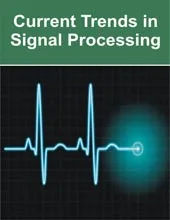
Abhay Kakad,

N.M. Wagdarikar,

Maithili Joshi,

Prajakta Gaikwad,
- Student, Department of Electronics & Telecommunication Engineering, Smt. Kashibai Navale College Engineering (SKNCOE), Vadgaun, Pune, Maharashtra, India
- Professor, Department of Electronics & Telecommunication Engineering, Smt. Kashibai Navale College Engineering (SKNCOE), Vadgaun, Pune, Maharashtra, India
- Student, Department of Electronics & Telecommunication Engineering, Smt. Kashibai Navale College Engineering (SKNCOE), Vadgaun, Pune, Maharashtra, India
- Student, Department of Electronics & Telecommunication Engineering, Smt. Kashibai Navale College Engineering (SKNCOE), Vadgaun, Pune, Maharashtra, India
Abstract
Accurate land measurement and documentation of land ownership and use are critical for effective land administration and management. However, traditional land measurement systems are often inefficient, inaccurate, and lack transparency, which can lead to disputes, fraud, and corruption. To address these issues, we propose a smart contract-based land measurement system that provides a secure, transparent, and efficient way to measure and document land ownership. Our system utilizes smart contracts, which are self-executing code stored on a blockchain, to automate and streamline the land measurement process. Smart contracts automate the process of measuring and recording land data, ensuring that the measurements are accurate and tamper-proof. Furthermore, our system allows multiple parties, including landowners, surveyors, and government agencies, to access and verify the data in real-time, improving transparency and reducing the potential for disputes. Decentralized consensus mechanisms ensure that all network participants agree on the validity of transactions, eliminating the need for a central authority to verify ownership records. Smart contracts automate the execution of land transfer agreements, triggering ownership transfers when predefined conditions are met. The use of blockchain technology ensures the security and integrity of ownership records, reducing the risk of fraud and manipulation. Automation through smart contracts streamlines administrative processes, reducing the time and resources required to record and verify ownership transfers. Furthermore, its decentralized nature of it reduces the risk of corruption and centralization, enhancing trust and accountability in the land administration process.
Keywords: LandRecords, Blockchain, Smart contract, Registry, Land, landowners
[This article belongs to Current Trends in Signal Processing(ctsp)]
Browse Figures
References
- Shinde, Disha, Snehal Padekar, Siddharth Raut, Abdul Wasay, and S. S. Sambhare. “Land Registry Using Blockchain-A Survey of existing systems and proposing a feasible solution.” In 2019 5th International Conference on Computing, Communication, Control And Automation (ICCUBEA), pp. 1-6. IEEE, 2019.
- Kaczorowska, Maria. “Blockchain-based land registration: Possibilities and challenges.” Masaryk University Journal of Law and Technology 13, no. 2 (2019): 339-360.
- Veeramani, Karthika, and Suresh Jaganathan. “Land registration: use-case of e-Governance using blockchain technology.” KSII Transactions on Internet and Information Systems (TIIS) 14, no. 9 (2020): 3693-3711.
- Shuaib, Mohammed, Noor Hafizah Hassan, Sahnius Usman, Shadab Alam, Surbhi Bhatia, Arwa Mashat, Adarsh Kumar, and Manoj Kumar. “Self-sovereign identity solution for blockchain-based land registry system: a comparison.” Mobile Information Systems 2022 (2022): 1-17.
- Ameyaw, Prince Donkor, and Walter Timo de Vries. “Toward smart land management: Land acquisition and the associated challenges in Ghana. A look into a blockchain digital land registry for prospects.” Land 10, no. 3 (2021): 239.
- US Agency for International Development, Investor Survey on Land Disputes: Perceptions and Practices of the Private Sector on Land and Resource Tenure Risks, US Agency for International Development, Washington, DC, USA, 2018.
- v. Weizsäcker, S. Eggler, and E. Atarim, Land Registries on a Distributed Ledger,Deutsche Gesellschaft fürInternationale Zusammenarbeit (GIZ) GmbH, Berlin, Germany, 2019
- Tapscott, India Land Registry on Blockchain, Research Institute Lighthouse, Toronto, Canada, 2018
- Thakur, M. N. Doja, Y. K. Dwivedi, T. Ahmad, and G. Khadanga, “Land records on blockchain for implementation of land titling in India,” International Journal of Information Management, vol. 52
- Eder, “Digital transformation: blockchain and land titles,” in OECD Global Anti-Corruption and Integrity Forum, pp. 1– 12, OECD (Organization for Economic Co-Operation and Development), Paris, France, 2019

Current Trends in Signal Processing
| Volume | 14 |
| Issue | 02 |
| Received | July 16, 2024 |
| Accepted | July 20, 2024 |
| Published | August 17, 2024 |

